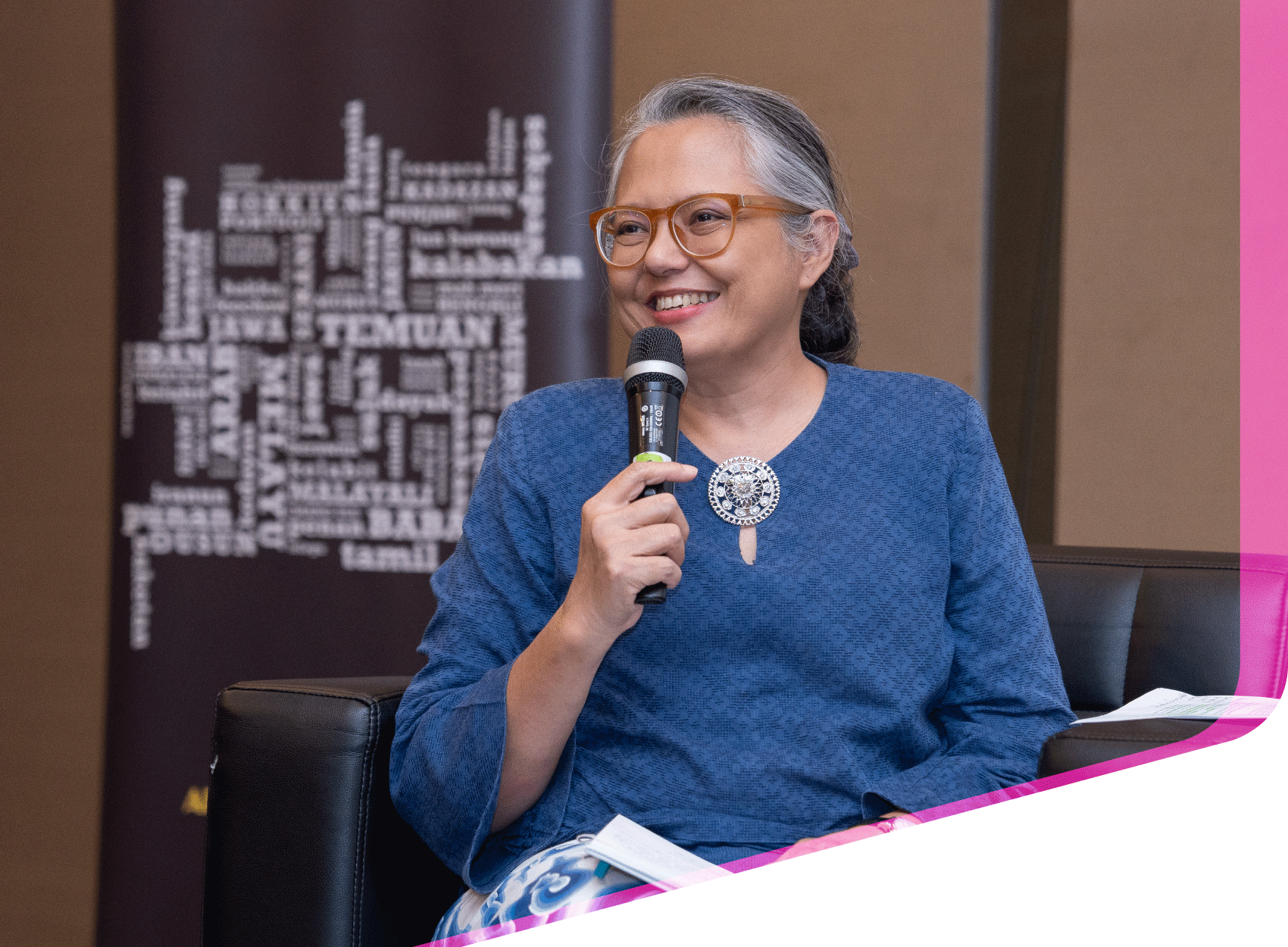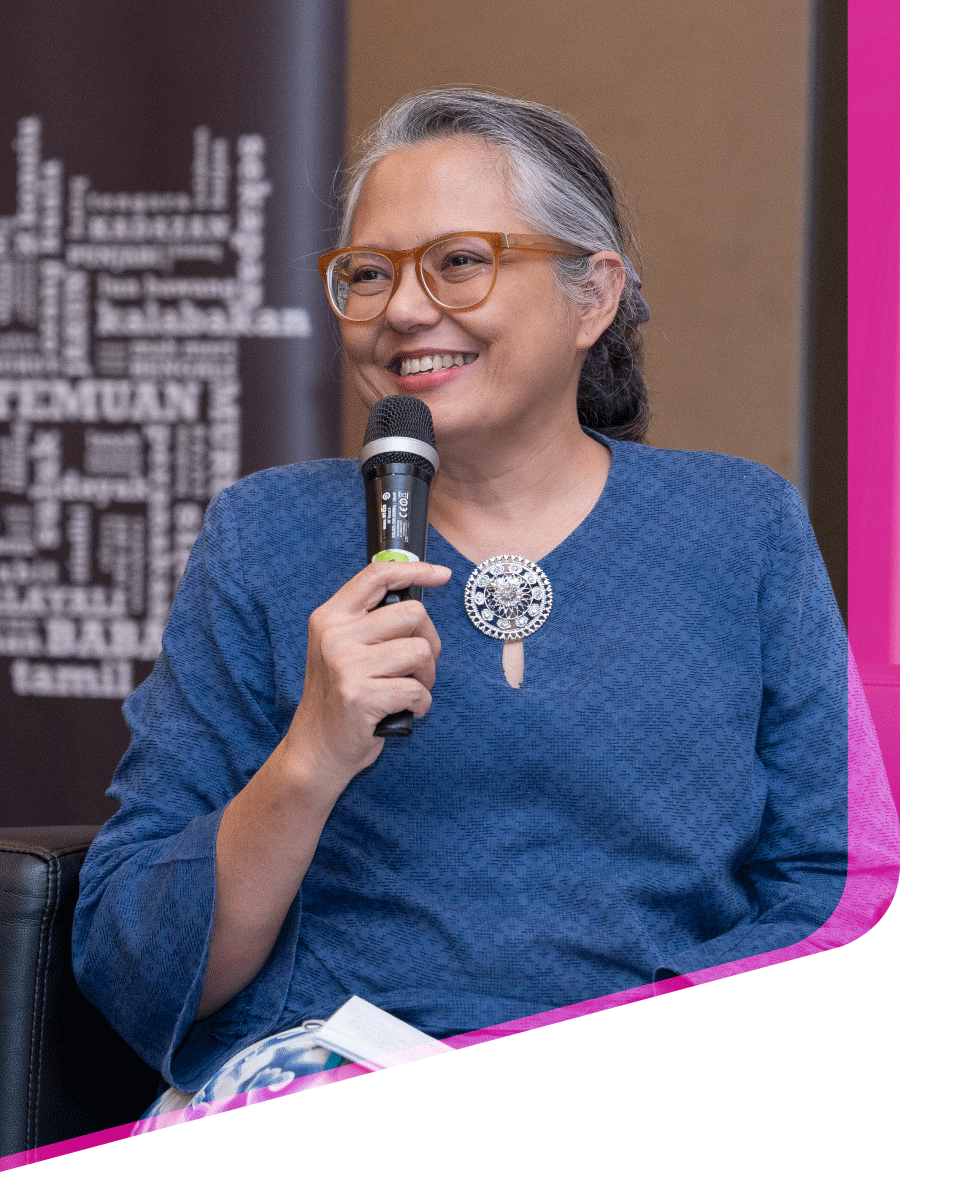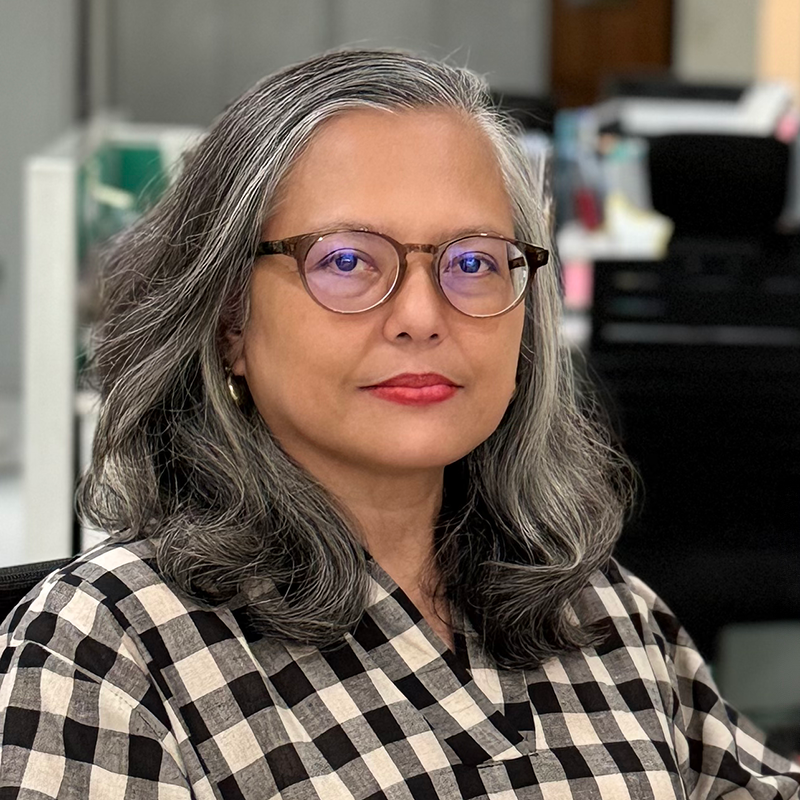
Malaysia
Malaysia
Malaysia
Rozana Isa
Rozana Isa
Rozana Isa
Executive Director of SIS Forum
Executive Director of SIS Forum
Executive Director of SIS Forum

Malaysia
Rozana Isa
Executive Director of SIS Forum
“We are living in a time when there is not only a strong backlash against gender equality, feminism, and liberalism but also movements and concerted efforts within state and non-state institutions and actors against these ideals.”

VITA
Rozana serves as the Executive Director of SIS Forum (Malaysia) (formerly known as Sisters in Islam), a Malaysian Non-Governmental Organization (NGO) working on women’s rights within the framework of Islam. She joined the Malaysian women’s rights movement in 1999 to address violence against women. The work at SIS addresses the challenges Muslim women face in getting their rights recognized and exercised in the context of Islam in politics and society in a nation that is diverse in ethnicity, thought, beliefs, and ways of life. Before leading SIS, Rozana worked with several national, regional, and international women’s rights organizations.
Could you tell us what challenges Muslim women are facing in Malaysia?
There is recognition of women’s equality in the public sphere with education and employment. However, there is still structural and legal discrimination that Muslim women face in their personal and family lives, including sexual and reproductive health and rights. Muslim women in Malaysia are vulnerable to pronouncements of unilateral divorce by their husbands outside of court. They are also vulnerable to their husbands being able to practice polygamy without mandatory permission or consultation with their first/prior wives. Provisions in divorce law that were specific to wives are now available to husbands because these laws have been made gender-neutral. Muslim mothers have a right to custody of their children, but they do not have legal guardianship. While policy reforms allow mothers to sign key documents, legal guardianship only remains with the father. Inheritance laws do not meet the realities of today and discriminate against the wife and daughters in the family, as the larger proportion goes to the sons or the patrilineal line because they are responsible for providing and caring for the female family members. In reality, there is no assurance that male family members will provide for their female relatives, especially given the low level of enforcement to ensure that fathers pay sufficient and regular child support. Child marriage, especially for girls, is still widely practiced and highly tolerated because there is no tolerance at all for unwed pregnancies and a strong stigma against children born out of wedlock. This results in many cases of baby dumping.
As a civil society organization focusing on women's rights, what is the mission of Sisters in Islam, and what are you currently working on?
The core basis of what we do and the reason for our existence is the promotion and reform of Muslim women's rights in the family, which is based on progressive Islamic teachings, constitutional guarantees, principles of human rights, and women's lived experiences. Along with that comes the work of upholding the fundamental liberties of Malaysians and their rights under the Federal Constitution, including freedom of speech and expression, freedom of thought, conscience, and belief, and ending harmful practices conducted in the name of religion and culture. Due to the context that we are living in, we also need to address the realities of rising religious conservatism and authoritarianism in a parliamentary democracy and plural legal systems in a society that is diverse in terms of ethnicity, culture, and religion.
What challenges do civil society organizations face in Malaysia?
We are living in a time when there is not only a strong backlash against gender equality, feminism, and liberalism but also movements and concerted efforts within state and non-state institutions and actors against these ideals. In addition, these efforts are backed by funds, technology, and the use of laws and policies that stifle differences in thought and opinion. This includes the consolidation of religious authoritarianism through parliamentary and legislative processes.

Is SIS facing any resistance, repression, or intimidation?
Yes, in July 2014, the Selangor Fatwa Committee issued a fatwa declaring SIS deviant for subscribing to liberalism and religious pluralism. SIS then applied for a judicial review in civil courts. After more than 10 years of going through the various stages of the legal proceedings, the Federal Court delivered its judgment on June 19, 2025. According to the judgment, Fatwas cannot be applied to incorporated bodies, institutions, and organizations. However, the Fatwa remains applicable to everyone in the organization as individuals who profess Islam as their religion. In Malaysia, the status "Islam" is indicated on the birth certificate and identity card of those born into a Muslim family or who convert to Islam. While the judgment is a decisive win for SIS as an organization, it is equally a reminder that Islamic laws apply to us as individuals and that a Fatwa carries the force of law. This means individuals can be charged under the Syariah Criminal Offences Enactment if they violate the Fatwa. On the evening the Federal Court judgment was delivered, the Sultan of Selangor urged SIS to drop the use of the word "Islam" in our name to avoid confusing the Muslim community. Following an extraordinary general meeting (EGM) held on 11 July 2025, we voted to discontinue our pen name, Sisters in Islam. Moving forward, we are known as SIS Forum (Malaysia), our registered name.
Do you have any protection or support mechanisms?
We have taken the necessary measures within our physical office space and provided the support required for the SIS staff. However, we remain just as vulnerable – if not more so – since the Fatwa continues to apply to us as individuals. Our work requires greater support in developing strategic thinking in both execution and communication. Religious authorities may still find something to take offence at, and access to justice in the Syariah Courts would be tested, even though this is not a path we wish to pursue.
Do you feel like your work has advanced women's rights in Malaysia and how?
Certainly. SIS’s biggest achievement is the creation of a public voice for Islam and Muslim women’s rights in the public space. This is significant in the moments of holding the line against further regression of Muslim women’s rights resulting from an understanding of Islam that views women as subordinate to men. We believe that Islam stands for equality and justice, and it is with this conviction that we speak out on our position on Islam and women’s rights. However, that public space, including online spaces, is shrinking due to the fatwa and other federal laws with vague provisions that curb freedom of speech and expression, including those on the three Rs: race, religion, and royalty. The work on women’s rights is not done alone but as a coalition with other women’s rights NGOs, such as the Joint Action Group for Gender Equality (JAG). Recently, there have been significant milestones made in laws and policies that relate to gender-based violence, sexual harassment, and Malaysian mothers’ right to pass on citizenship to their children born overseas. We still have a long way to go. The enforcement of laws and court orders relating to Muslim women’s rights and their children are still very weak, child marriage is still widely practiced in rural and urban communities, and female genital cutting is still very prevalent in Muslim communities.
Do you have any message for civil society representatives in other Muslim countries?
Suppose we don’t get involved in understanding and interpreting the meaning of Islam, its laws, and its practices. In that case, there will always be someone else defining and determining what Islam, its laws, and its practices mean and should be for the rest of us.
Malaysia
